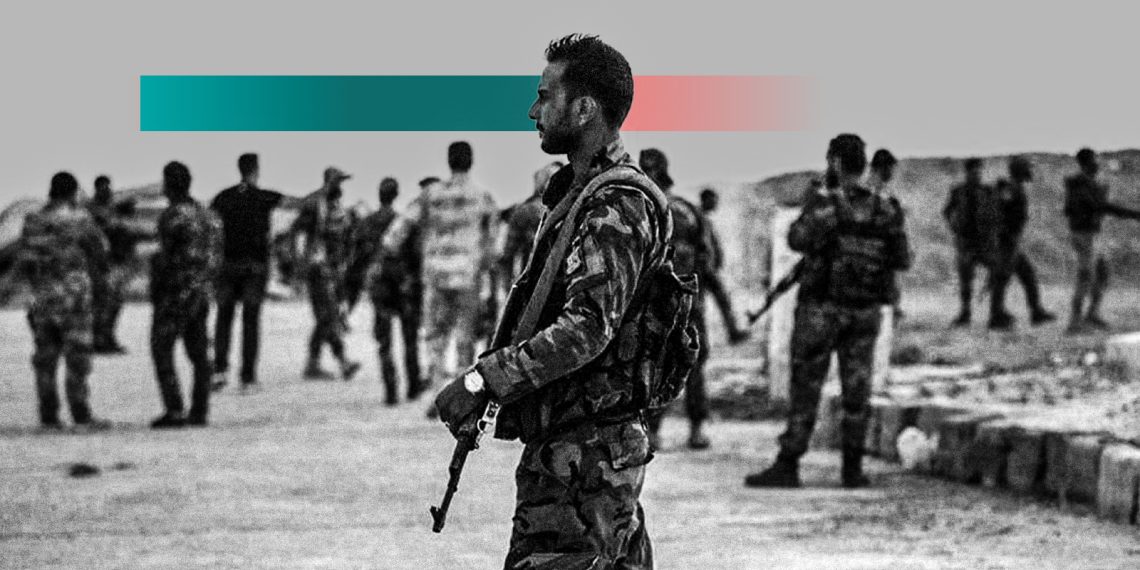When Syria’s transitional president Ahmad al-Sharaa announced the suspension of compulsory military service shortly after taking office, the decision was hailed by many as a symbolic break from decades of militarized authoritarianism. But as whispers grow of its possible return, a deeper question arises: does this represent a permanent shift in Syria’s military doctrine, or merely a pause dictated by political necessity?
From Civic Duty to Lifelong Burden
Since 2011, mandatory conscription in Syria morphed from a short-term national obligation into a dreaded, indefinite burden. The Assad regime extended military service well beyond its statutory limits, forcibly recalling thousands of discharged civilians to serve in a war against their own communities. In some cases, young Syrians spent up to a decade in uniform—often against their will. The result: a mass exodus of youth through migration, draft evasion, or hiding, as military service became synonymous with repression rather than patriotism.
With the regime gone and Syria attempting to rebuild, the future of the armed forces hangs in the balance. Political analysts warn that any reintroduction of conscription could cause social unrest and further alienate a population already distrustful of state institutions. At the same time, military experts suggest that Syria is inching toward a leaner, more professional army trained along NATO lines—an approach that inherently rejects mass conscription.
The End of the Old Model?
For now, Sharaa’s government appears committed to ending conscription as a structural feature of the military. In his December 2024 statement, the president said some specialized skills might still be called upon “for limited periods,” but offered no details.
Syrian writer and political activist Mouaffaq Nyrabia told 963+ that he does not expect a return to mandatory service under the new government—nor does he hope to see one. “Reinstating conscription would create confusion, resentment, and inequality between regions and social groups. The current chaos in people’s lives and plans is enough. We need stability, not more disruption,” he said.
Nyrabia added that a truly national army can only emerge from a unified political identity—something Syria has yet to fully achieve. “A professional army is the right starting point. Mandatory service, if ever discussed again, should be part of a broader constitutional debate, because both questions speak to the core of what kind of country Syria wants to be.”
A New Military Doctrine?
According to military analyst Nidal Abu Zaid, based in Jordan, the answer lies in a broader transformation already underway: “It is unlikely that Syria will reinstate mandatory military service, especially amid reports of Turkish-led training programs for the new Syrian army.”
He points to a shift away from the Soviet-style doctrines of the Assad era and toward a Western military framework, more in line with NATO principles. “Conscription doesn’t fit into that model,” he says.
Abu Zaid also notes that Syria’s growing engagement with international financial institutions, particularly the World Bank, may place additional pressure on the government to abandon conscription. “One of the Bank’s general conditions for lending is reducing unnecessary state expenditure. Maintaining a large conscript army runs counter to that goal.”
The Rise of a Light and Agile Force
Syria’s new defense strategy, according to Abu Zaid, favors a “lean and clean” military—light, fast, and professional. Instead of depending on large numbers of conscripts, the focus is shifting toward building a compact, elite force capable of precise operations. This transformation involves absorbing former rebel factions and restructuring them into disciplined units under a unified command.
The new threats Syria faces—namely ISIS remnants and rogue pro-Assad militias—require mobility and tactical precision more than brute manpower. “A smaller, smarter force is better suited to today’s security landscape,” Abu Zaid adds. “And that doesn’t require mandatory conscription—it demands training, cohesion, and strategic clarity.”
The Road Ahead
While rumours of conscription’s return continue to circulate, there is little evidence suggesting that Syria is abandoning its new military trajectory. For now, the government appears focused on reform, professionalization, and securing international support—both politically and financially.
Whether this shift becomes permanent will depend not just on the evolving security situation, but also on Syria’s ability to build a new social contract between state and society—one that no longer relies on coercion, but on consent. Until then, the debate over conscription remains a barometer of Syria’s larger transformation—from a militarized autocracy to a civilian-led republic in search of peace.
This article was translated and edited by The Syrian Observer. The Syrian Observer has not verified the content of this story. Responsibility for the information and views set out in this article lies entirely with the author.


